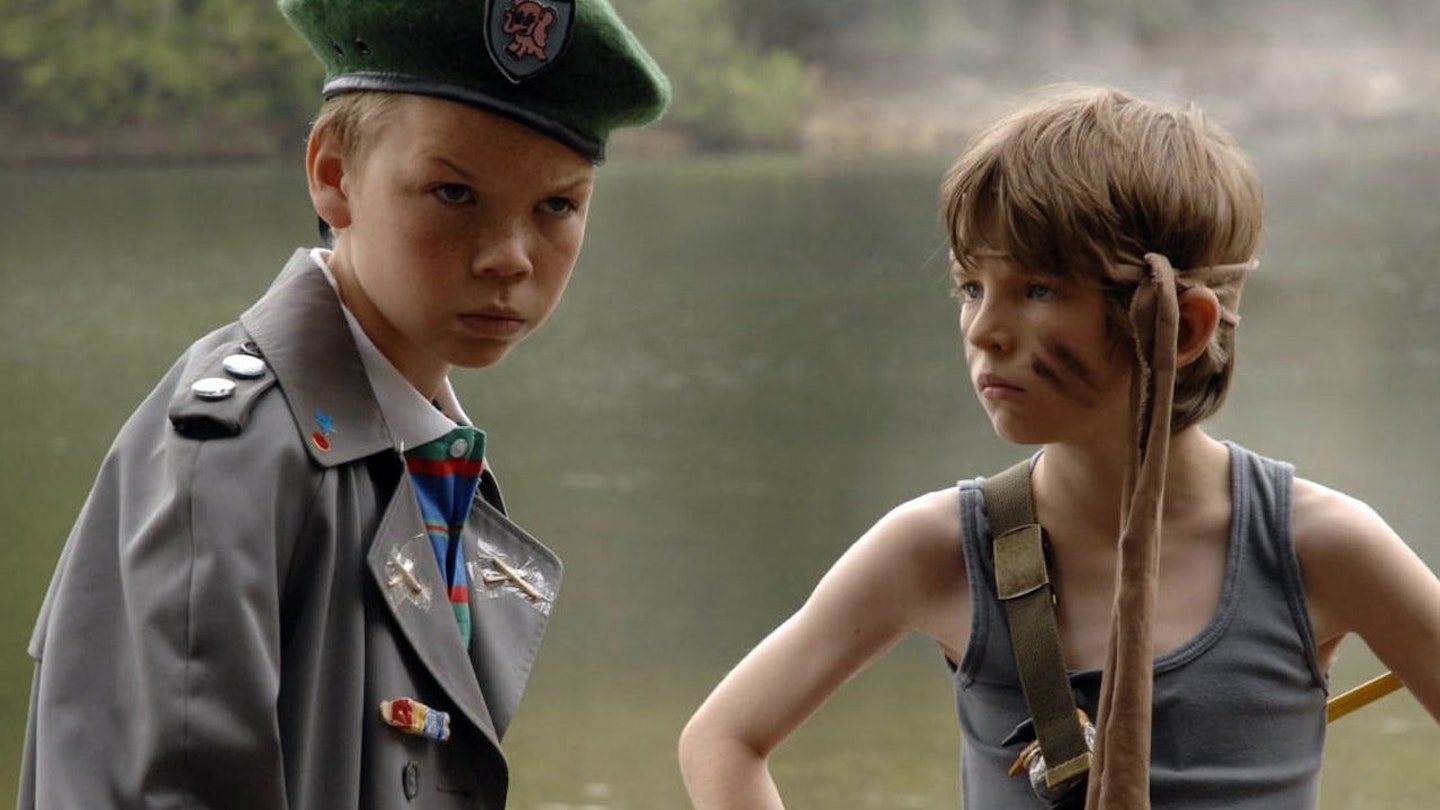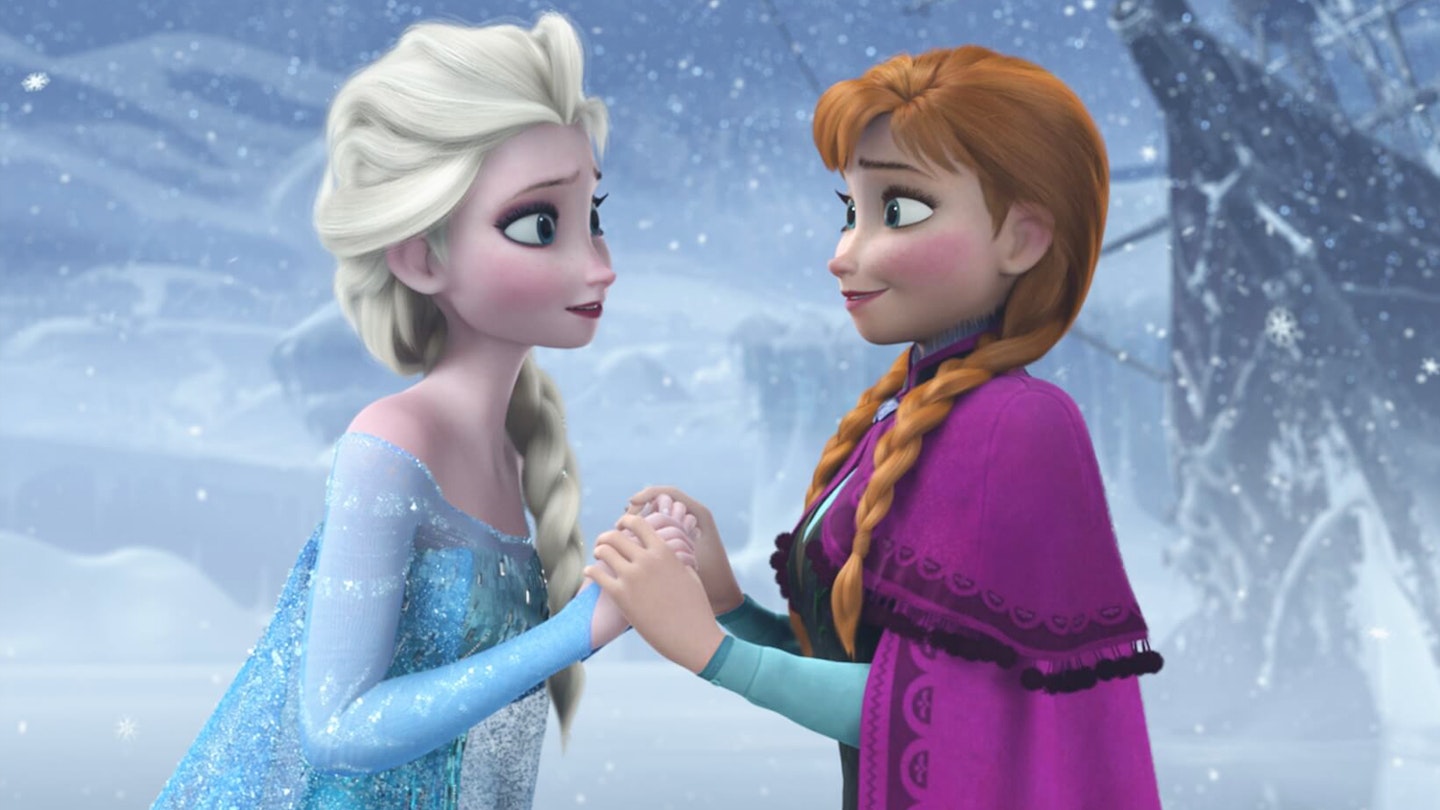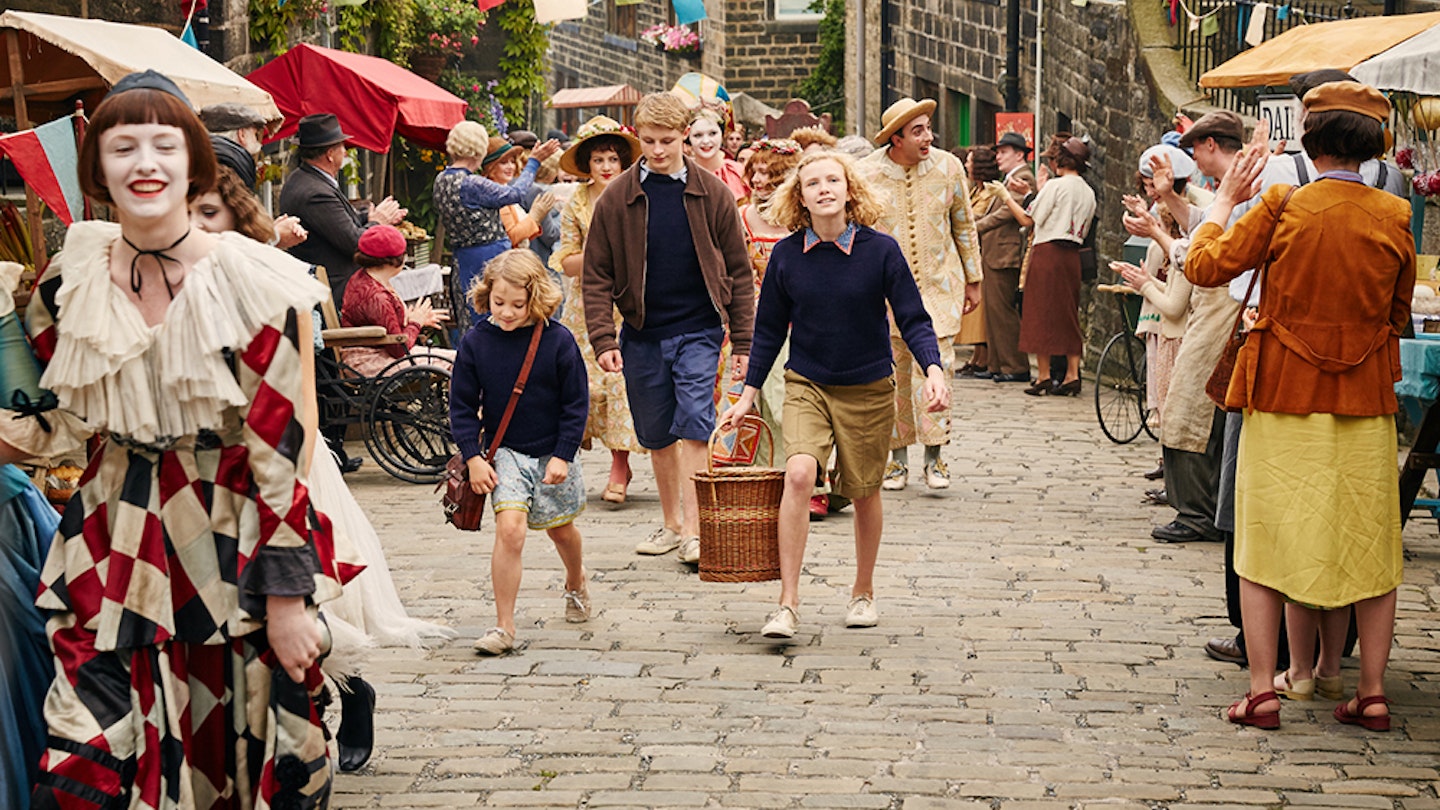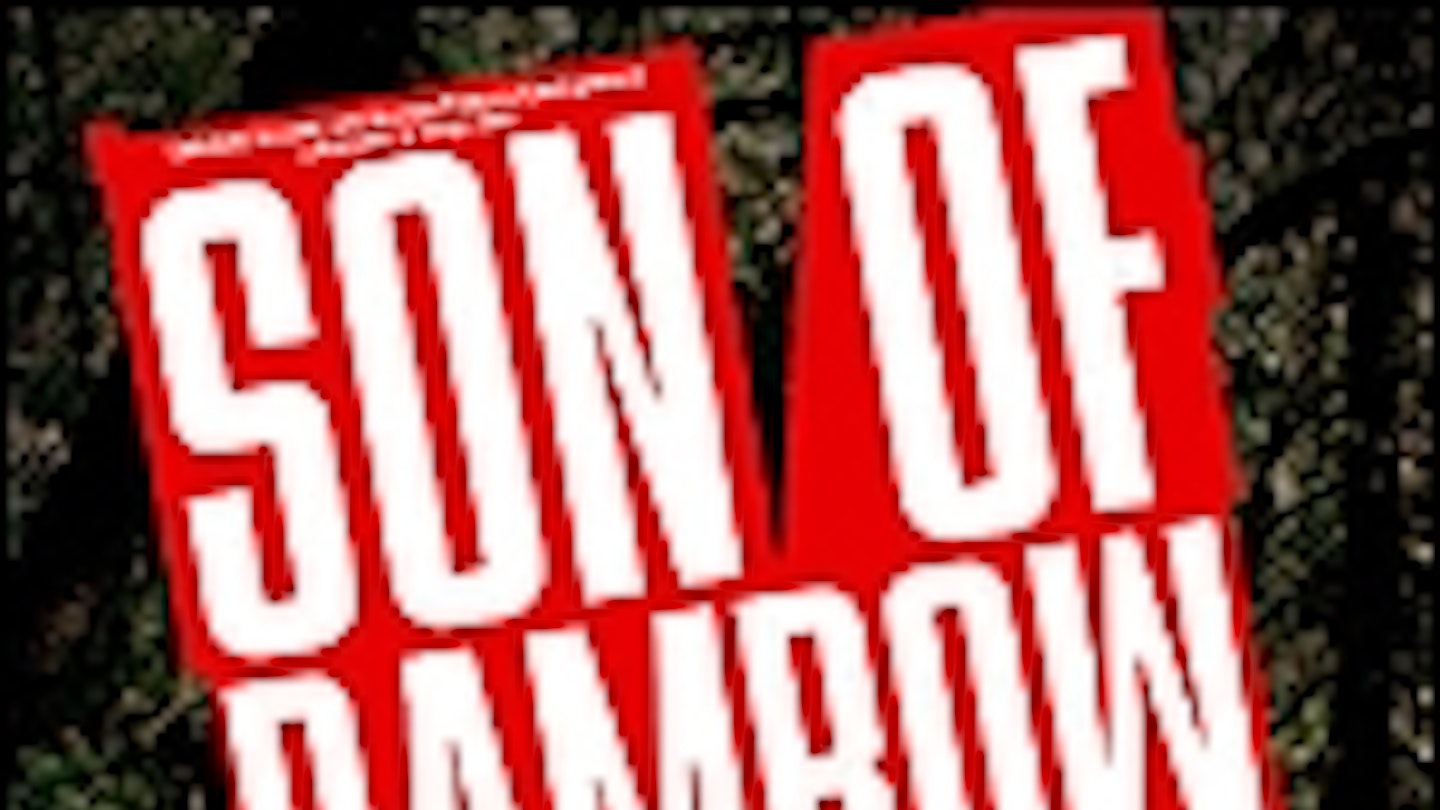If movies really didn’t ever unduly influence the impressionable, then Son Of Rambow wouldn’t exist. Indeed, one sequence alone could justify the BBFC’s certification system. After viewing First Blood on pirate video, Will Proudfoot (Bill Miner) whips up a violent semi-cartoon reverie, a pumped-up fantasy which culminates in the previously mouse-like child baring his teeth and stabbing a scarecrow’s straw-stuffed gut with a crossbow bolt. Later we see him, decked in his own DIY Rambo kit, tumbling from a tree, hitting every bough on his way down, and swinging on a rope over a lake and diving in - even though he can’t swim.
Taken out of context, and even factoring in the deliberately Looney Tunes flavour of the violence (up until the near-drowning, little Will is presented as near-indestructible), this could be disturbing stuff. So, not wanting Empire to be misinterpreted as some rabid pro-censorship organ, let’s consider the context. Will is a member of the Plymouth Brethren, a nasty little überChristian sect whose Spartan proclivities prevent its whey-faced members from listening to pop music, watching movies, or even reading books (well, other than the Bible). Like most indoctrinated children, Will is more victim of psychological bullying than fervent acolyte, and his imagination can only flare secretly through the doodles he scrawls on the school toilet wall and inscribes colourfully in the margins of his barely digested Good Book while exiled from lessons reliant on TV and VHS. So when, after a bruising encounter with school renegade Lee Carter (Will Poulter), Will is welcomed to the heady world of non-religious narrative in the form of John “eats things that would make a billy goat puke” Rambo, you can understand how that powerful imagination could go off like a glorious nuke.
Son Of Rambow is principally a celebration of unfettered creativity, how it can be inspired by the most unlikely of things and how, in childhood especially, it can have a valuable emancipating effect. Thankfully, the recognition of that effect’s darker edges keeps the film just on the right side of whimsical, unlike the similar but inferior Be Kind Rewind. It helps that writer/director Garth Jennings - the British Michel Gondry, if you like - has maintained that barmy sense of humour so evident both in his music videos (the anthropomorphised milk-carton adventure that is Blur’s Coffee & TV promo) and his last movie, The Hitchhiker’s Guide To The Galaxy. So where that movie saw the cast briefly converted into knitted-wool dolls, here we get a Rambo-as-10-year-old boy being machine-gunned by a flying labrador.
It helps even more that the story is a deeply personal one, based on Jennings’ own childhood: the obsession with First Blood, the Rambo-inspired home video, the French exchange students... It’s Jennings’ crystalline recollections of his film-making endeavours that anchor the film so comfortably, its child’s-mind perception making the flights of fantasy and even the madder moments feel true (hence Will’s Wile E. Coyote endurance). We’re seeing him how the camera-waving Lee - at first bemused, then delighted, by his new friend/plaything’s fanatical conversion to the Church Of Rambo - is seeing him. Hence also the strange deification of très cool exchange student Didier (Jules Sitruk), and the rather wonderful Sixth-Form Common Room sequence, which presents the big kids’ hang-out as a hedonistic night-club, only with sherbet instead of cocaine.
Jennings’ personal investment also ensures that the ‘80s nostalgia is less about snickering at the hairstyles, more about Lee Carter’s use of the word “skill” (resulting in the superb phrase “skill on toast”) the crass, marbled nouveau riche decor of the Carter household and those guide-dog-shaped charity collection boxes. There’s an almost overwhelmingly reassuring feel to the re-creation of time and place - the place being English suburbia, that vast, homogenous privet-hedged playground for Thatcher’s children whose stifling atmosphere was happily untasted by its prepubescent inhabitants.
The downside of the movie’s autobiographical origin and Jennings’ position as auteur is a lack of storytelling discipline.
The second act wibbles off track, bringing the more broadly comical figure of Didier too far forward, as a subplot has his dumpy Brit hosts attempt to keep their Gallic guest entertained. As it is entwined with the main story strand - that of Will and Lee Carter’s attempt to turn their First Blood sequel Son Of Rambow into the winning entry on TV’s Screen Test - your attention threatens to wane.
But this flaw also highlights the movie’s greatest strength, namely the undeniable, yet never gaggingly saccharine, sweetness which suffuses the friendship between Will and Lee. It begins as an Oliver/Artful Dodger-style team-up, with the scampish Lee exploiting Will’s timid naiveté. But, aided by a pair of completely convincing and naturalistic performances by new discoveries Milner and Poulter, this carefully evolves into a genuinely touching friendship.
What’s truly remarkable, both in terms of the boys’ performances and Jennings’ direction, is the way that neither boy appears aware of how the relationship is progressing, or why - and it’s not garishly signposted for the audience, either. Instead, by the ‘blood brothers’ scene, which sees this unlikely pair happily holding hands for a good few minutes, we’ve gradually come to realise that they’ve bonded (well, they have literally, as the hand-holding causes the scabs on their palm-cuts to gel). Each of these boys is in his own way a pariah, and they unwittingly connect over their mutual, largely unrealised sense of dislocation. Both are cushioned by their vivid imaginations in that resilient way that children can be, wilfully blind to their domestic problems - until matters, of course, come to a head and they have to face up to a few home truths.
The absent father is admittedly a dramatic cliché (just look at most of Spielberg’s output), but that does nothing to dim Son Of Rambow’s power to affect. Will’s lost his father to a tragic accident; Lee Carter’s ex-pat folks have left him in the ‘care’ of his oafish brother. Yet there’s no big dramatic ‘realisation’ moment where they recognise this link - largely thanks to the fact that this isn’t a Hollywood picture, encumbered by all those tedious notions of therapy and closure. Instead, together these ‘blood brothers’ unconsciously find and form their own unlikely but also strangely appropriate surrogate father - one John Rambo, or rather, ‘Rambow’, an ideal who dwells only within their home-video. It’s this, rather than any gags about lo-fi film-making or daft action flicks, which defines this movie. And you don’t have to be overly impressionable to be affected by that.






